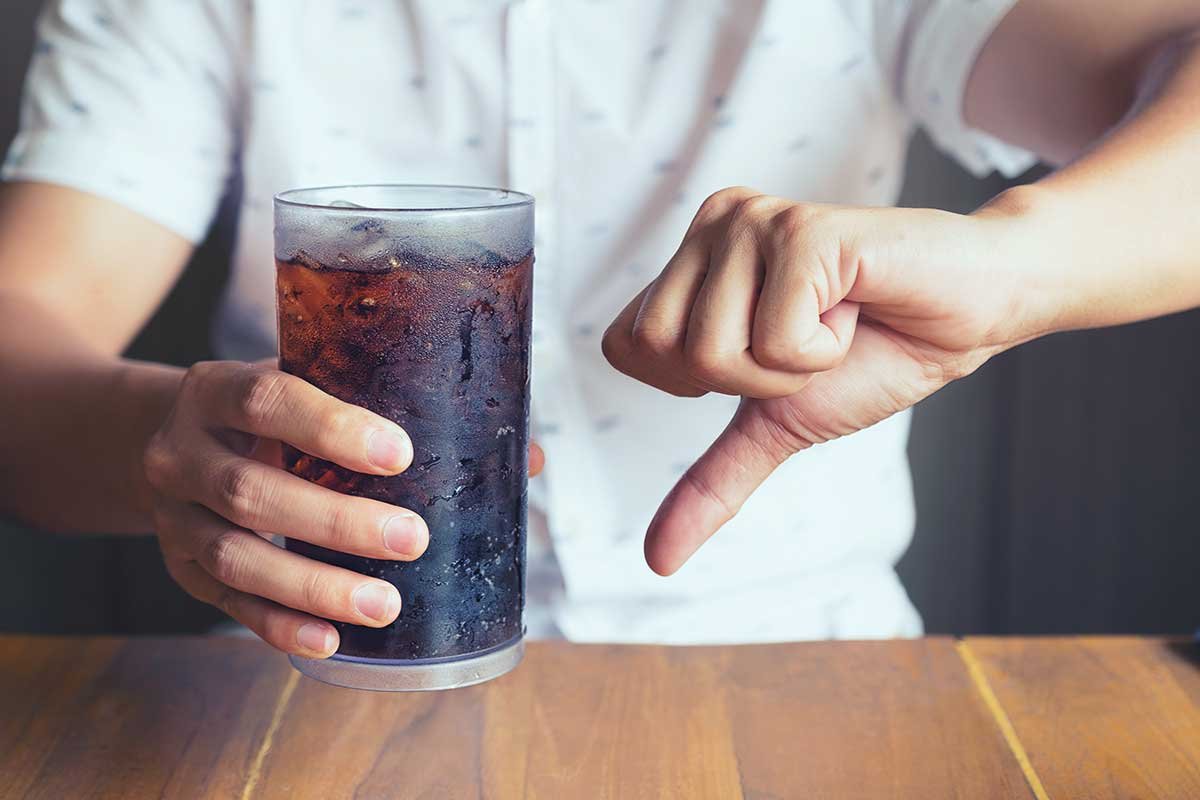The changes are remarkable—yes, even when you give up the diet versions, too.
Drinking soda is an easy habit to fall back into—it’s everywhere, and it’s easy to consider diet versions to be a relatively harmless vice. A sip for nostalgia’s sake or a quick caffeine hit can lead back to a three-a-day habit.
We had two diet experts tell us what happens to your body once you finally give up the colorful carbonated menace for good. And—spoiler alert—in their view, soda isn’t just bad for you; it’s dangerous.
You’ll reduce sugar cravings
Cutting the calories from sugar-spiked soda is a no-brainer: At 150 calories a can, those can add up to serious poundage. But diet soda packs on the pounds as well—it’s just more passive-aggressive about it. “Artificial sweeteners affect our sense of satiety,” says Dietitians.
“Our bodies have evolutionarily developed to expect a large amount of calories when we take in something exceedingly sweet, and those artificial sweeteners are from 400 times to 8,000 times sweeter than sugar. It causes a couple things to happen: The muscles in your stomach relax so you can take in food, and hormones are released. With artificial sweeteners, your body says, ‘Wait a minute, you told me you were going to give me all this high-calorie food.’ It can actually send some people searching for more food, out of lack of satisfaction.”
You’ll lose weight
“Even though diet drinks are calorie-free, they cause insulin to be released in your gut because their artificial sweeteners are sweet like sugar, and that actually prevents weight loss,”. “Insulin is your body’s primary fat-storage hormone, so it will have the body hold on to any extra fat. “Trying to lose weight by trading a Coke for a Diet Coke is doing the body just as much harm, if not more, because of all the chemicals in the calorie-free version.” While you’re weaning yourself off of your soda habit, add these fat burning foods to your diet, some of which actually block adipogenesis, the process by which fat is stored on your frame.
You’ll increase your immunity
The acidity in soda is bad news for your digestive system, eroding tooth enamel and worsening acid reflux. But diet sodas are especially treacherous for your gut—and the far-reaching bodily systems it affects. “Researchers are finding that artificial sweeteners may affect our healthy gut bacteria, which can affect everything from blood-sugar control to weight management to disease—how our immune system works and how our body responds to infection.
You’ll Have Stronger Bones
The caramel color in soda contains an artificially created phosphorus that can be bad for long-term bone health, says Dietitians. Phosphorous is a natural chemical found in foods like beans and grains, but the mutant variety found in dark soda is like a dinner guest who refuses to leave. “Basically, you’re taking something that exists in nature but making this hyper-absorbable form of it. “Your body doesn’t have the choice whether to absorb it or excrete it, so it can cause calcium to leach out of bones. It’s particularly bad for anybody with kidney disease.
You’ll have more energy
No shocker here: The caffeine in soda is not your friend. “Drinking too much caffeine can make you dehydrated, and it can overstimulate the nervous system, making you fatigued and exhausted,” says Dietitians. “I find that when people cut back on caffeine they have more energy because the caffeine causes very big highs and lows.
In practice, Dietitians has seen what happens when you stop drinking soda, and it can lead to a positive domino effect. “There is way more energy for our bodies in real food than in processed foods,” she says, adding, “When people cut back on processed items, they often look for more fresh foods and make better choices. By giving up soda, it may seem like you’re making one change, but it can actually change a couple aspects of your diet for the better.”

